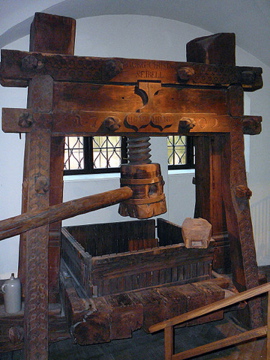Download The Free Guide
Discover practical conversation skills to get unbelievers thinking and make way for the Spirit’s work in their lives.
"*" indicates required fields
 The advent of the internet on a popular level in the mid-1990’s and on a global scale by the turn of the century has had such an all-encompassing effect on the world, that it is virtually impossible anymore to imagine life without it. In the past few years serious thought and writing have emerged about the possibilities of this technology for the spread of gospel and the edification of the church.
The advent of the internet on a popular level in the mid-1990’s and on a global scale by the turn of the century has had such an all-encompassing effect on the world, that it is virtually impossible anymore to imagine life without it. In the past few years serious thought and writing have emerged about the possibilities of this technology for the spread of gospel and the edification of the church.
Some object to the internet as too uncertain and prone to corruption for any serious use for spiritual purposes. In an attempt to perhaps preserve the old-fashioned ways of print media, some have balked at accepting the internet as a useful tool for God’s church. Perhaps these skeptics should go further back in history to the time when print media was the new technology and was transforming society in a way every bit as radical as the internet today.
Carter Lindberg documents the radical transformation of society in the fifteenth century in his book, The European Reformations (Blackwell, 1996). With the advent of moveable metal type in Germany, inexpensive linen rag paper from China and quality ink, the printing press transformed Europe by the rapid dissemination of ideas. Whereas John Wyclif’s ideas took decades to spread by means of hand-written copies, Martin Luther’s ideas blanketed Europe within six months. By 1500, printing presses existed in over 200 cities and towns. An estimated 6,000,000 books were in print, and half of the 30,000 titles were on religious subjects. Between 1460 and 1500 more books were printed than had been produced by scribes and monks throughout the entire Middle Ages (p. 36).
Books were not the only means of spreading ideas. Thousands of pamphlets and tracts incorporating pictures, images and cartoons flooded the Empire. In contrast to publications from the Middle Ages, which served primarily to preserve and transmit knowledge, the print media of the Reformation had a new function: to transmit opinions. These publications could be enormously provocative by swaying opinions and moving people to action in such momentous ways as to cause governments great concern (p. 37). And the most effective publicist to capitalize on this new tool was Martin Luther. According to historian Mark Edwards,
[Luther] dominated to a degree that no other person to my knowledge has ever dominated a major propaganda campaign and mass movement since. Not Lenin, not Mao Tse-tung, not Thomas Jefferson, John Adams, or Patrick Henry (Edwards, Printing, Propaganda and Martin Luther, xii).
In Wittenberg, Germany, there were seven print shops devoted exclusively to the writings of Luther and his colleagues. In other words, Luther saw the potential of the new technology for the spread of the gospel and sound doctrine, and capitalized on it very effectively.
What does that mean for us? With all the genuine dangers of the internet and the over-connected lifestyle of people in the West, technology is in itself a neutral “thing” that can be used for good or evil. Rather than let the potential good of the internet go to waste, we should use it to the best of our ability for the spread of the gospel and sound doctrine, for the edification of the church and the evangelism of the world. Like Luther, we should discern the possibilities of websites, blogging, social media sites, and whatever else comes along through the internet. Technology should never distract from our calling, but it can certainly help it, if we have a vision for its possibilities.
by Jeffrey Mindler, Research Assistant “Therefore take up the whole armor of God, that you may be able to withstand in the evil day, and having done all, to...
When defending the faith against unbelievers, we want to strike at the heart of the unbelieving system of thought. We want to identify the main source of...
by Jeff Mindler, Research Assistant at Apologetics for the Church “Everyone then who hears these words of mine and does them will be like a wise man who built...
Notifications